Section 195 of Income Tax Act, 1961 is a critical provision aimed at ensuring tax compliance on payments made to non-residents. It mandates the deduction of tds on non resident payment on certain payments made to foreign entities or individuals. This section is particularly relevant for businesses and individuals making payments like royalty, interest, or technical fees to non-residents.
In this guide, we’ll explore the provisions, applicability, rates, exemptions, and compliance requirements of Section 195 of Income Tax Act to ensure you stay informed and compliant.
On payments made to non-residents,TDS on nri payment must be deducted in accordance with Section 195 of Income Tax Act. To guarantee compliance with tax rules, the payer has to deduct TDS at the appropriate rates prior to making the payment.
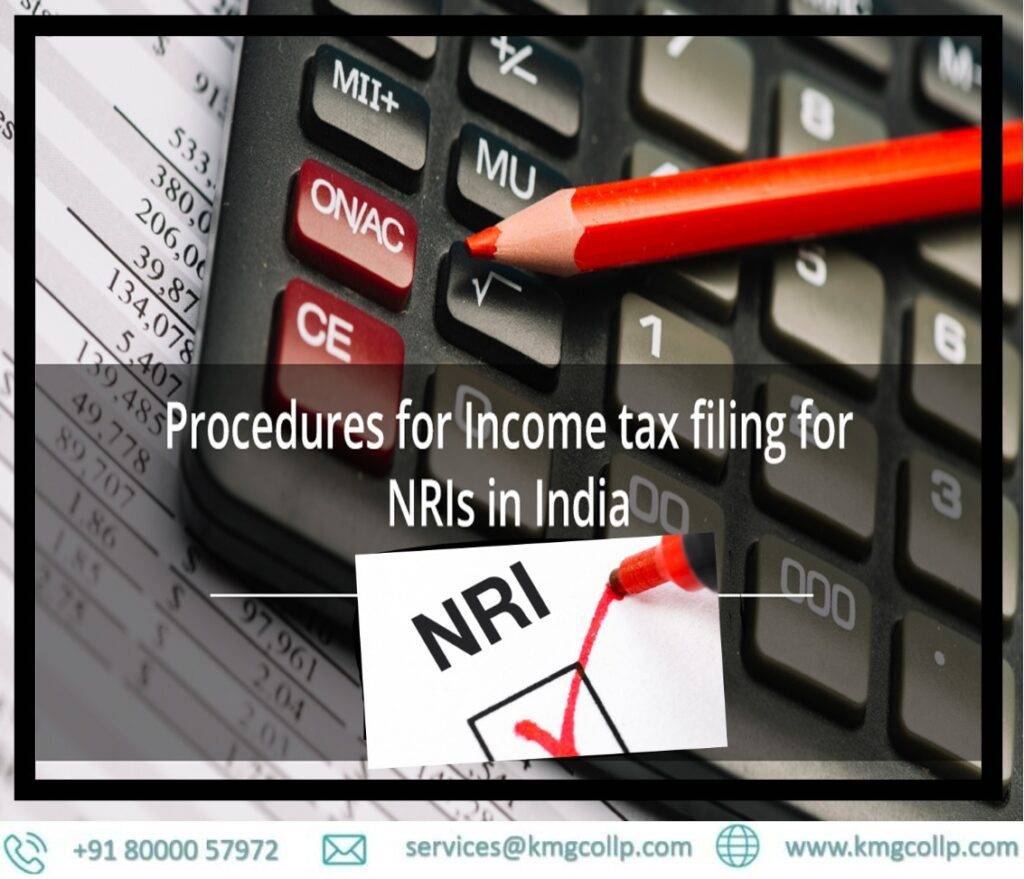
What is Section 195 of Income Tax Act?
Section 195 of Income Tax Act governs the deduction of TDS on payments made to non-residents or foreign companies. It ensures that taxes are deducted on any income accruing to a non-resident in India, thus preventing tax evasion.
Key Features of Section Section 195 of Income Tax Act:
- Applicable to payments made by residents to non-residents.
- Covers a wide range of payments, including:
- Interest
- Royalty
- Fees for technical services
- Capital gains
- Dividends
- Mandates deduction at the source before remitting payments abroad.
Applicability of Section 195 of Income Tax Act
Section 195 of Income Tax Act applies to any payment made to a non-resident that is chargeable to tax under the Income Tax Act, 1961. Here’s a closer look at when it applies:
- Who needs to deduct TDS on nri payment?
- Any person (individual, company, partnership, etc.) making a payment to a non-resident.
- What payments are covered?
- Payments taxable under the Income Tax Act, such as:
- Interest on loans taken from foreign institutions.
- Royalty payments for intellectual property.
- Fees for technical or professional services.
- Capital gains earned by a non-resident from the sale of Indian assets.
- Payments taxable under the Income Tax Act, such as:
- Who is excluded?
- Payments made by non-residents to other non-residents.
- Payments exempted under tax treaties or DTAA (Double Taxation Avoidance Agreement).
Rates of TDS on NRI payment Under Section Section 195 of Income Tax Act
The rate of TDS on NRI payment depends on the nature of the payment and the applicable tax treaty (DTAA). Below are the common TDS rates:
|
Type of Payment |
TDS Rate (Without DTAA) |
TDS Rate (With DTAA) |
|
Interest on foreign loans |
20% |
As per treaty |
|
Royalties |
10% |
10-15% |
|
Fees for technical services |
10% |
10-15% |
|
Capital Gains |
20-40% |
As per treaty |
|
Other Income |
30% |
As per treaty |
Note:
- A surcharge and health & education cess may also be applicable.
- Lower rates can apply if a Tax Residency Certificate (TRC) is submitted by the non-resident.

Steps for Deduction Under Section 195 of Income Tax Act
To comply with Section Section 195 of Income Tax Act, follow these steps:
- Determine Taxability:
Confirm whether the payment is taxable in India under the Income Tax Act. - Apply for Certificate of Lower Deduction (Optional):
The payer or recipient can apply to the Assessing Officer for a lower TDS deduction rate. - Deduct TDS on non resident payment:
Deduct TDS on non resident payment at the applicable rate before making the payment to the non-resident. - Deposit TDS:
Deposit the deducted TDS with the government within the due date using Challan ITNS 281. - File Form 15CA and 15CB:
- Form 15CA: Declaration of TDS on NRI payment.
- Form 15CB: Certificate from a Chartered Accountant confirming the deduction.
- Issue Form 16A:
Provide the non-resident with a TDS certificate for their records.
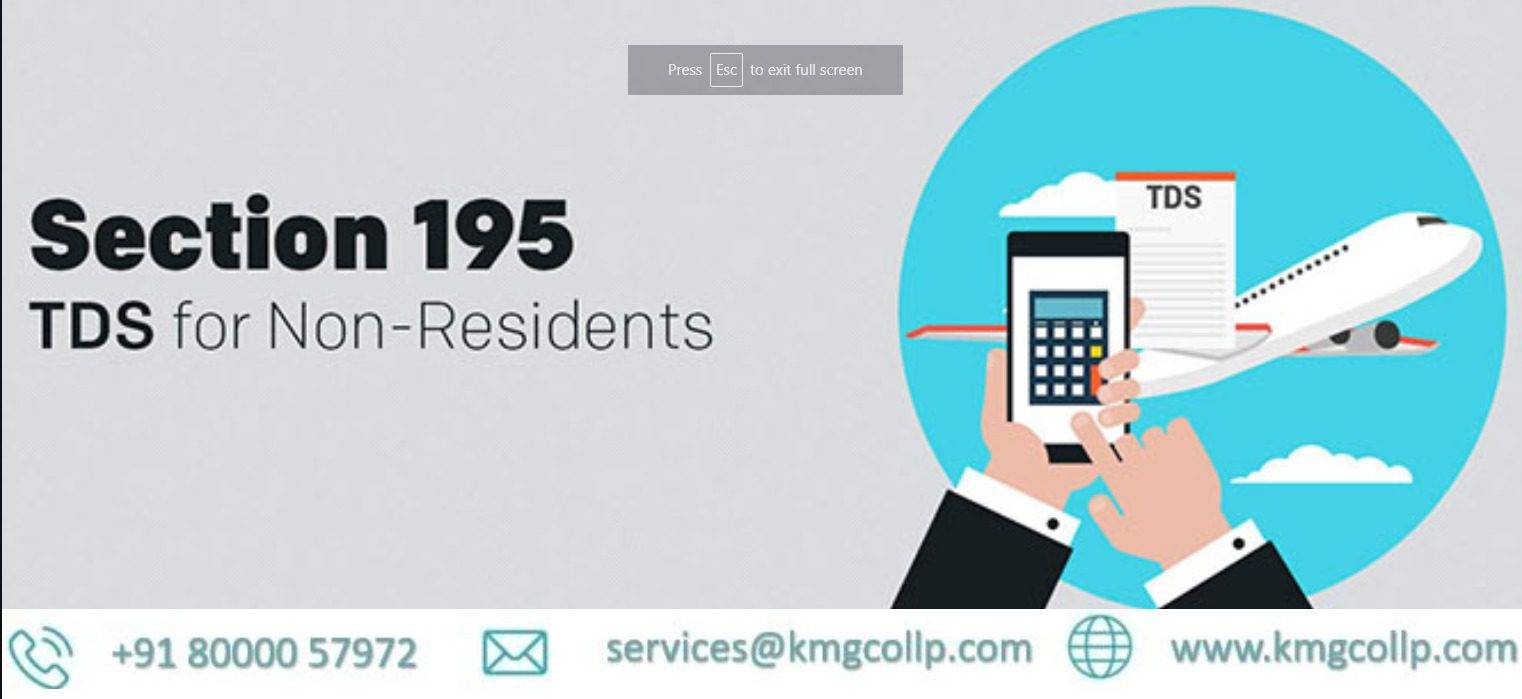
Exemptions Under Section Section 195 of Income Tax Act
Some payments are exempt from TDS under Section 195 of the Income Tax Act:
- Payments Not Taxable in India:
If the income is not chargeable to tax in India, no TDS on NRI payment is required. For example, interest on certain foreign borrowings under specific exemptions. - Relief Under DTAA:
If a Double Taxation Avoidance Agreement (DTAA) exists, the non-resident can avail of reduced tax rates or exemptions. - Lower TDS Certificate:
The non-resident can apply for a lower TDS certificate under Section 197 to reduce the tax burden.
Penalties for Non-Compliance
Non-compliance with Section 195 of the Income Tax Act can lead to significant penalties:
- Disallowance of Expenses:
Payments made without TDS deduction may be disallowed as business expenses. - Interest on Late Payment:
- 1% per month for failure to deduct TDS on non resident payment.
- 1.5% per month for failure to deposit TDS on non resident payment.
- Penalty:
A penalty equivalent to the TDS amount may be levied.
Case Studies on Section 195 of the Income Tax Act
- Payment for Technical Services:
A software company in Jaipur pays $50,000 to a US consultant for technical advice. The payment is taxable, and the company must deduct TDS at 10% (or as per DTAA). - Capital Gains by Non-Residents:
A non-resident sells a property in India for ₹1 crore. The buyer must deduct TDS at 20% (or lower as per DTAA) on the capital gains.
Section 195 of the Income Tax Act plays a pivotal role in ensuring tax compliance on cross-border payments. By understanding its provisions and adhering to its guidelines, individuals and businesses can avoid penalties and ensure smooth international transactions.
If you’re unsure about the applicability of Section 195 of Income Tax Act for your transactions, consult with an experienced Chartered Accountant to ensure compliance.
Need help with TDS on non resident payment under Section 195 of Income Tax Act? Our team of expert Chartered Accountants is here to assist you with:
- TDS Compliance
- Filing Forms 15CA and 15CB
- Claiming DTAA benefits
FAQs of TDS on non resident payment Section 195 of the Income Tax Act
Without PAN, what is the rate for Section 195 TDS? If the payees’ Permanent Account Number (PAN) is unavailable, the tax deduction for all financial transactions subject to TDS will be increased by 20%. This is additionally appropriate to all non-occupants in regard of installments/settlements responsible to TDS
Section 195 of the Income Tax Act of 1961 addresses the deduction of TDS from payments to non-resident aliens. 1.4. Limit of Threshold: Under Section 195, there is no threshold for the TDS deduction from payments to non-resident aliens. The payer is required to deduct TDS pursuant to Section 195 if the income of NRIs is subject to Indian taxes.
TDS on NRI payment under Section 195 of Income Tax Act is in the range of 10% to 30%
A TDS certificate, also known as a Certificate of Tax Deduction or Form 16A, can be issued to the NRI seller after the buyer has completed the Section 195 process of TDS deposition. The buyer must then submit the Form 27Q i.e TDS returns preparation to file the TDS return electronically.
Form 15CA/15CB is required for payments exceeding ₹5 lakhs, as per RBI guidelines.
Yes, the non-resident can file an Income Tax Return (ITR) in India to claim a refund.
Yes, individuals making payments to non-residents, such as rent or fees, must deduct TDS under Section 195.
TDS must be deposited by the 7th day of the following month in which it was deducted.
Owner of this information can be reached at K M GATECHA & CO LLP.
Important note: This does not lead to legal advice or legal opinion and is personal view and for information purpose only. It is prepared on the basis of facts available and applicable law.It is suggested to go through applicable provisions of law,latest regulations,judicial announcements, circulars, notifications and clarifications etc before taking any action based on above content.You agree here by that for any action taken on basis of above information in any manner writer or K M GATECHA & CO LLP is not responsible or liable for any omission,reliability,accuracy,completeness,errors or authenticity.This work by professional is just for knowledge purpose and does not constitute any kind of solicitation of work or advertisement.
-
 Section 10 Of Income Tax Act_ Exemptions, Allowances & How To Claim It15/08/2024/0 Comments
Section 10 Of Income Tax Act_ Exemptions, Allowances & How To Claim It15/08/2024/0 Comments -
 Steps to register private limited company15/08/2024/
Steps to register private limited company15/08/2024/ -
 Cancellation of registration under GST26/05/2024/
Cancellation of registration under GST26/05/2024/ -

-
 Introduction to Transfer Pricing in India13/04/2024/
Introduction to Transfer Pricing in India13/04/2024/ -

-

-
 Tax Liability of a NRI24/12/2023/
Tax Liability of a NRI24/12/2023/ -
 Everything about SFT18/12/2023/
Everything about SFT18/12/2023/ -
 Documents to be maintained by NGo or trust17/12/2023/
Documents to be maintained by NGo or trust17/12/2023/ -

-

-
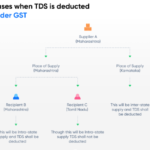
-
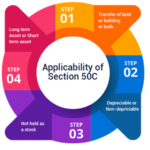
-
 Taxation of Charitable/Religious Trust04/09/2023/
Taxation of Charitable/Religious Trust04/09/2023/ -

-
 Application for Filing Clarification – GST09/06/2023/
Application for Filing Clarification – GST09/06/2023/ -
 How to check GST application status09/06/2023/
How to check GST application status09/06/2023/ -

-
 Gift tax under section 56(2)x03/06/2023/
Gift tax under section 56(2)x03/06/2023/ -

-

-

-

-

-
 All about Appeal under GST20/05/2023/
All about Appeal under GST20/05/2023/ -
 Old vs New income tax regime18/05/2023/
Old vs New income tax regime18/05/2023/ -
 All about GSTR 10, GST Amnesty16/05/2023/
All about GSTR 10, GST Amnesty16/05/2023/ -

-

-
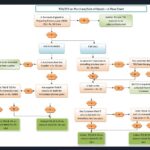 TDS on purchase of goods u/s 194Q17/01/2022/
TDS on purchase of goods u/s 194Q17/01/2022/ -
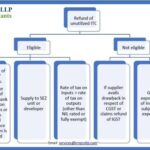 Situations of GST refund and process10/01/2022/
Situations of GST refund and process10/01/2022/ -
 Tax on property sale in India05/01/2022/
Tax on property sale in India05/01/2022/ -
 House Rent Deduction in Income Tax01/01/2022/
House Rent Deduction in Income Tax01/01/2022/ -

-

-

Table of Contents
Toggle



